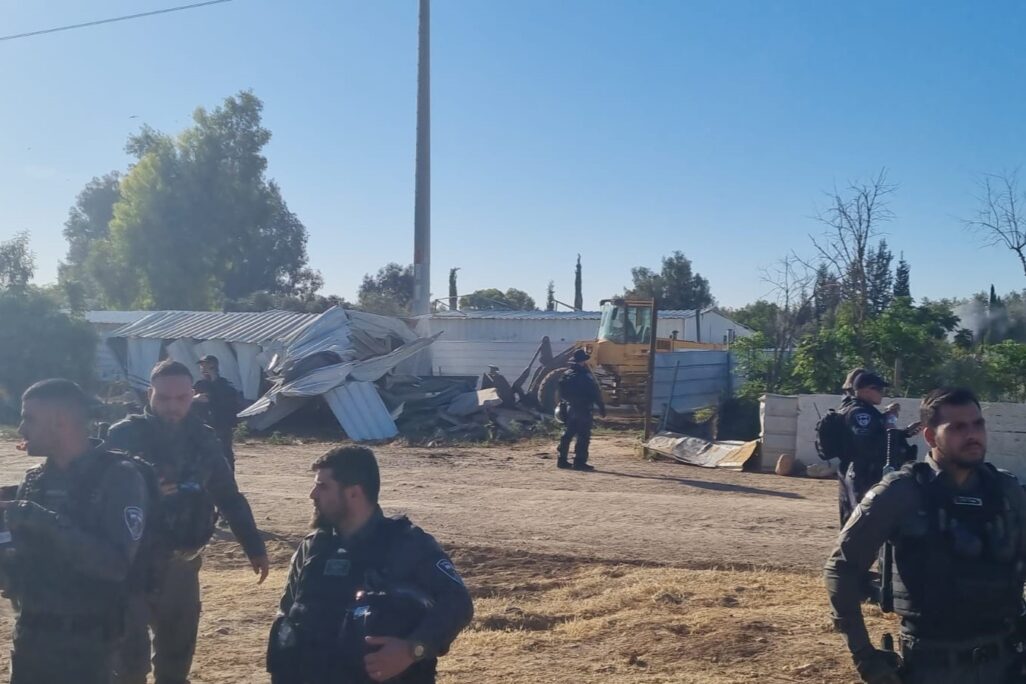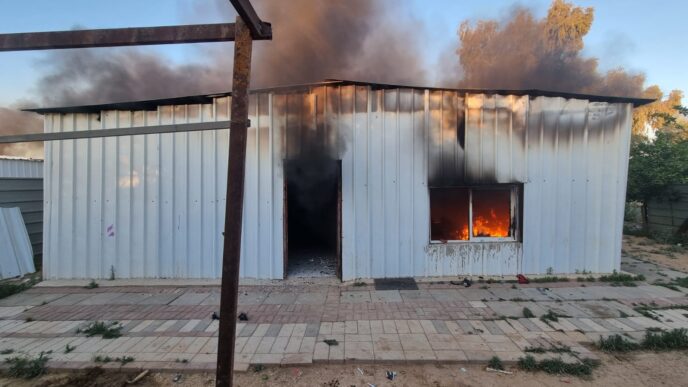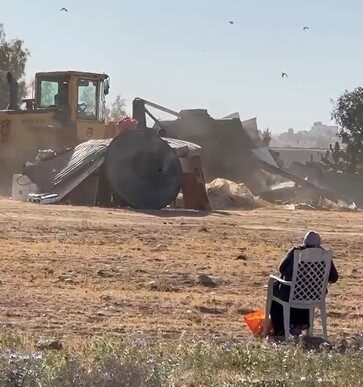
A large police force arrived earlier this month at the Abu Issa family’s compound in the unrecognized Bedouin village of Wadi Khalil in the Negev and began demolishing buildings. This comes a day after the Supreme Court rejected the family's request for an interim injunction against the demolition of their homes pending security for new housing. The police informed Jaber Abu Issa in advance of the intention to demolish all 47 buildings which had previously received a demolition order.
There are seven Bedouin townships in the Negev and 45 villages, only 12 of which are officially recognized by the Israeli government. Demolition orders have been issued for Areas of Wadi Khalil since 2019, when Israel began planning an extension to Highway 6, and last year the Abu Issa family began their legal battle to ensure safe new housing.

The family had agreed to move to a new neighborhood which would be built near the recognized Bedouin town of Tel Sheva. In order to build the neighborhood, responsibility over the state land in question needs to be transferred to the Tel Sheva Local Council, but the Ministry of the Interior has not yet approved the transfer. Instead of the neighborhood in Tel Sheva, the government now wants to move the Abu Issa family to a neighborhood in the village of Umm Batin, but a local Bedouin family there has threatened violence against the Abu Issas. The family is afraid to move to Umm Batin and petitioned the Supreme Court in order to secure the Tel Sheva plan.
At dawn, after most of the children and women had left, Ali Abu Issa decided to burn his house in protest of the destruction of the village homes. While the police gathered in order to secure the demolition operation, a group of family members, other residents of the Negev and members of Knesset attempted to prevent the demolitions. MK Youssef Atauna from the majority-Arab leftist political coalition Hadash-Ta'al tried to block the bulldozer, and was joined by MK Waleed Khalil Alhwashla from the Joint List. After the police evacuated them, the bulldozers continued their demolition under heavy security.
The office of National Security Minister Itamar Ben Gvir issued a statement, saying that "[t]he demolition of dozens of illegal buildings in Abu Issa’s compound in the Negev is an important step in sovereignty and governance.

"Indeed, as the minister promised when he took office, there is a marked increase in the demolition of illegal houses in the Negev, and the minister is proud to lead this policy and does so every week at round tables and with the participation of the Authority for Regulating Bedouin Settlements in the Negev."
The office gave special thanks to police who enforced the demolition, and added:
"Let every lawbreaker in the Negev know that the lands of the Negev are not desolate, and the State of Israel will fight a brutal war against those who take over land and try to determine reality on the ground."
The 'Regavim' movement, a pro-settler Israeli NGO established by Finance Minister Bezalel Smotrich which monitors and pursues legal action against construction lacking Israeli permits undertaken by Palestinians or Bedouins in Israel and in the West Bank, stated:
"The vision and plans for the development of the Negev have been blocked too many times and for too many years because of illegal construction. Highway 6 is a critical lifeline for the State of Israel and its development. With forward-looking eyes, it is clear to everyone that the State of Israel must develop infrastructures and complete them for the well-being of the Negev residents and the future generation."
This article was translated from Hebrew by Hannah Blount.






